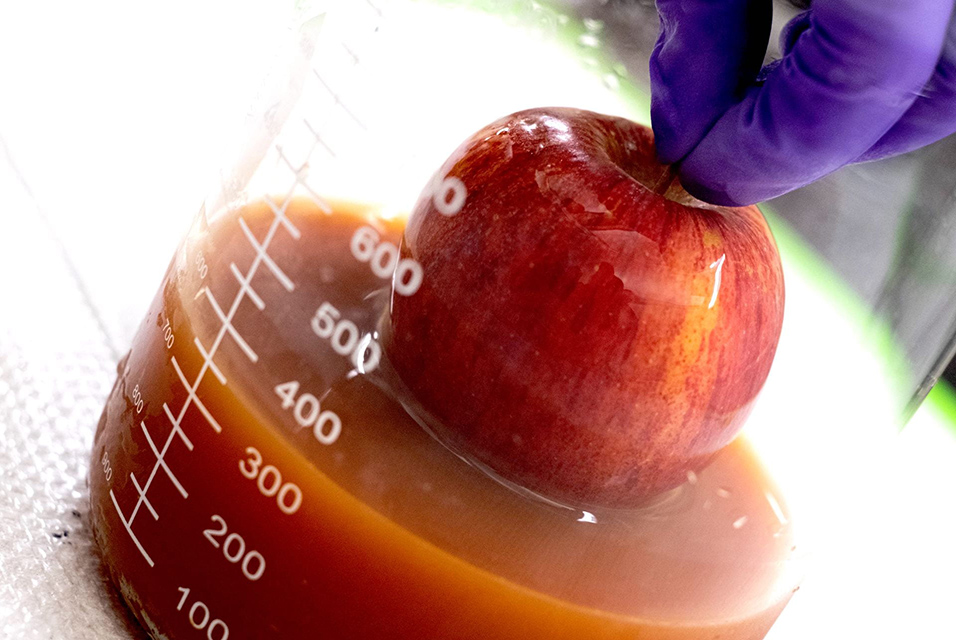HOUSTON, TX.- Your fruits and vegetables might come with a side — or coating — of extra protein in the future.
Rice University materials scientist Muhammad Rahman has won a Partnerships for Innovation-Technology Translation award from the National Science Foundation to develop a sustainable, low-cost, egg-based coating to extend the shelf life of fruits and vegetables. The project addresses both food preservation and waste management challenges and could help improve access to fresh produce in food deserts, areas with poor access to healthy and affordable foods.
“The goal of this project is to develop an eco-friendly, biodegradable, protein-based nanocomposite coating that can be applied to the surface of variously shaped fruits and vegetables,” said Rahman, an assistant research professor in materials science and nanoengineering. “The coating will extend shelf life by reducing produce spoilage, dehydration and microbial growth rates.
“This award will allow me to move this project from lab- to pilot-scale. Food-coating practices currently rely on waxes, and a protein-based coating could really be a game-changer. I think Rice is a great place to be if you’re trying to build bridges between what happens in the lab and real-world applications.”
Fruits and vegetables have the highest spoilage rates of all foods. More than half of all produce ends up in the trash.
Up to one-third of the food produced globally and an estimated 30%-40% of the U.S. food supply is wasted each year. The U.S. Department of Agriculture estimated in 2010 that nearly 220 pounds of food waste per person are produced each year, worth a total of $161 billion.
Food loss and waste represents a significant source of greenhouse gas emissions as well. A 2021 report published by the Environmental Protection Agency estimated that carbon dioxide emissions resulting from food loss and waste in the U.S. each year are the equivalent of roughly 18% of the amount of annual emissions from America’s coal-fired power plants.
“The broader hope for this project is to improve the food industry carbon footprint and sustainability,” Rahman said. “I strive to align my research with the challenges of this critical, historic moment that confronts us with the urgent need to address anthropogenic climate change and find real-world solutions for a more sustainable future.”
Rahman’s project builds on earlier research on the egg-based coating, which was shown to double the shelf life of avocados, bananas and other fruit. The coating, which is made from surplus eggs, won Rahman and collaborator Pulickel Ajayan the Sustainable Technologies/Future Energy category in the 2021 Tech Briefs Create the Future competition.









